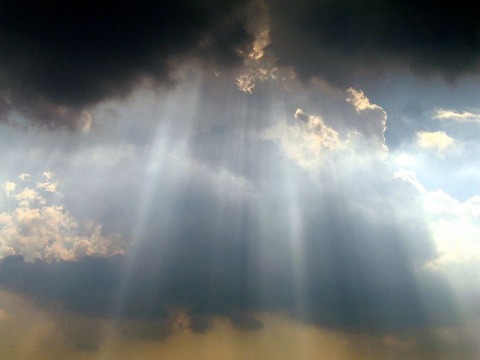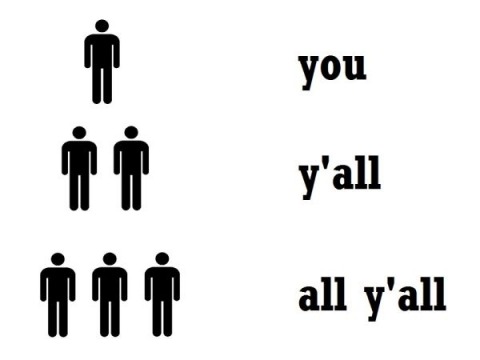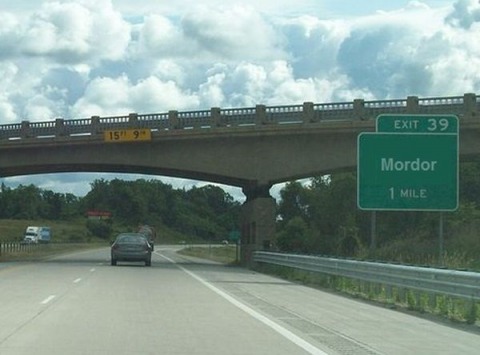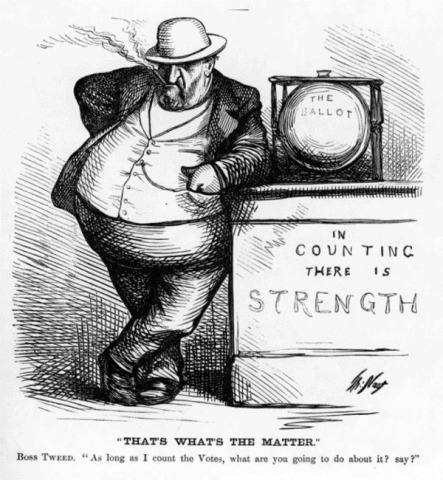
The Underground Thomist
Blog
Light Through DarknessTuesday, 03-03-2015
The chief limitation of the human intellect is not sheer shortage of brainpower, but defect of character. The weakness of our minds is not that we are not smart enough, but that we are not good enough. Consider how faulty our thinking is about other people because we are too interested in ourselves; How readily we devise reasons to disbelieve truths which are stated by our enemies; How easily the disorders of our hearts and affairs make us lose intellectual focus; How insidiously the desire for pre-eminence and the fear of losing status impair intellectual honesty; How dreadfully we tire ourselves with the effort of trying not to think of things that we cannot face; How obsessively we raise pinnacles of plausible reasoning to excuse and monumentalize what we know to be wrong; How eagerly we substitute cleverness for wisdom, curiosity for wonder, passion for zeal; And how easily we are dissuaded from the happy travail of thought by sheer failure to love truth enough. Were it not for these and all the many other drags and weights of sin, we would spring from insight to insight as easily as a robin capers from branch to branch. Our minds would be the tinder that our passions are now, ready at a spark to burst into flame. It is said to be thus with the blessed. Tomorrow: Curious Differences
|
Yo, She’s PregnantMonday, 03-02-2015
Mondays are for student letters – or at least letters from young people -- and yes, this was a real letter. Question: Yo, wass up, I’ve been dating my girl for about a year now and I love her you know, even if I don’t always tell her that. Anyways we just found out that she’s pregnant and she’s really upset, she doesn’t know how to tell her folks. Oh yeah, I’m 20 years old, she’s only 17. I’m young, intelligent, make a good living for myself. My girl is from a different background, her parents don’t mind that, but they’re real strict and I think things will change now that I got her pregnant. We don’t believe in abortion and she don’t want to give it up for adoption so we’re gonna have to eventually tell them what’s going on. What should I do? How can I let her know I’m sorry? Please help me. Reply: You say you love her. I don’t see the evidence yet. Do you really want to know how to let her know that you’re sorry? Or do you just want to get off the hook? The way to show that you’re sorry is to do the right thing. This is where you find out how much you want to be a man. No matter what you’re afraid of, her parents have a right to be told; there is no “eventually.” The sooner the better. Like today. Most families pull together in a pinch. If you were both of age, I would tell you to marry her, provide for her, stay married, be faithful, and be a good father. That’s the advice I gave another young guy who got his girlfriend pregnant.* Your case is different, because depending on where you live, she may not be of age. I can’t give you advice about the law. Morally, I advise you to face the music. Do what you can to repair the hurt that you’ve done to this girl and your unborn child. That includes providing for them. From now on, everything else in your life takes second place, and I mean everything. Note * See “I Got My Girlfriend Pregnant. What Now?” The girlfriend of that letter wrote to me a moving letter of her own some time later – after she and the young man were married and the baby was born -- and I included it in Ask Me Anything, pp. 66-68. Tomorrow: Light Through Darkness
|
Was St. Paul a Southerner?Sunday, 03-01-2015
The evidence is his persistent employment of the second person plural. For example: “The God of peace be with y’all.” (Romans 15:33) “Now I want y’all to speak in tongues, but even more to prophesy .... I thank God that I speak in tongues more than y’all; nevertheless, in church I would rather speak five words with my mind, in order to instruct others, than ten thousand words in a tongue.” (1 Corinthians 14:5, 18) “My love be with y’all in Christ Jesus. Amen.” (1 Corinthians 16:24) “And I wrote as I did, so that when I came I might not suffer pain from those who should have made me rejoice, for I felt sure of all of you, that my joy would be the joy of y’all.” (2 Corinthians 2:3) “And besides our own comfort we rejoiced still more at the joy of Titus, because his mind has been set at rest by y’all.” (2 Corinthians 7:13) “The grace of the Lord Jesus Christ and the love of God and the fellowship of the Holy Spirit be with y’all.” (2 Corinthians 13:14) “For God is my witness, how I yearn for y’all with the affection of Christ Jesus” (Philippians 1:8) “We give thanks to God always for y’all, constantly mentioning you in our prayers.” (1 Thessalonians 1:2) “The Lord be with y’all. I, Paul, write this greeting with my own hand. This is the mark in every letter of mine; it is the way I write. The grace of our Lord Jesus Christ be with y’all.” (2 Thessalonians 3:16-18) Tomorrow: Yo, She’s Pregnant
|
Pining for MordorSaturday, 02-28-2015
Want to win bets? You can guess how persons of the liberal persuasion will come down on any issue by considering which opinion would justify an expansion of government. This is true not only in the case of “Do something!” issues like global warming, but even the case of supposedly libertarian issues, like sexual self-definition, because the state must compel everyone else to go along. It isn’t true that the issues compel them to seek totalizing government; rather the enchantment of totalizing government sways them to view the issues in certain ways. Tomorrow: Was St. Paul a Southerner?
|
Goo GoosThursday, 02-26-2015
I am speaking in Tucson Thursday nightPolitical slang used to be a lot more fun. In the days of the big-city political machines, Progressives who fancied themselves advocates of “good government” were called Goo Goos. One of the main targets of the Goo Goos was the patron-client system that kept the political establishment working. They considered it corrupt, because people went along with the party not because they agreed with its policies, but because they received material rewards for doing so. The irony is that although the Goo Goos partially dismantled the old patron-client system, they set up another in its place, on a national scale, with politically-connected interest groups instead of ward bosses in control. Like the old patronage system, the new one rewards fat cats who cooperate with the system, for example ideologically correct businesses (think Solyndra) and labor organizations (think government employee unions). What about the not-so-fat cats? The old system disbursed Thanksgiving turkeys and patronage jobs to cooperators who weren’t well off. The new one promises them welfare. If there has to be a patronage system – it’s an ancient model of government – I prefer the old one. Tomorrow: Pining for Mordor
|
Marvelous ResourceWednesday, 02-25-2015
I am speaking in Tucson tomorrow night “... and the Lord went before them to show the way by day in a pillar of a cloud.” Faith, similar to clouds, is opaque with its mysteries, dissolves when it gives way to vision, and moistens by arousing devotion. – Thomas Aquinas, Commentary on the Letter of Saint Paul to the EphesiansI have only recently discovered that the Aquinas Institute for the Study of Sacred Doctrine has put all of St. Thomas’s New Testament commentaries online. After selecting the commentary you want to read, you can study the text and translation in parallel columns. The mouth of the mind waters at the very thought of it. Ultimately, the Institute aims to put all of the Angelic Doctor’s works into print, and the printed volumes are even better. As I type this post, I’m examining the Institute’s edition of the Commentary on the Letter of Saint Paul to the Romans, translated by F.R. Larcher. St. Paul’s words are given in Latin, Greek, and English; St. Thomas’s line-by-line exposition, in Latin and English. Beautiful. Tomorrow: Goo Goos
|
Nothing Is NeutralTuesday, 02-24-2015
If I say that euthanasia should be illegal because murder violates the law of God, then obviously I suppose that there is a God, that He has a law, that this law ought to be obeyed, that it forbids murder, that euthanasia is murder, and that He requires human authority to back him up on such a point. If instead I say that euthanasia should not be illegal, then obviously I suppose either that there is no God, that even if there is a God He has no law, that even if He has a law it need not be obeyed, that even if it must be obeyed it does not forbid murder, that even if it does forbid murder euthanasia is not murder, or that even if euthanasia is murder He does not require human authority to back him up on such a point. If I seek relief from judgment in the doctrine that the state has neither the right nor the competence to decide such questions, then I deceive myself, for indecision is decision; to say that the state should not pass judgment is merely to pass judgment that euthanasia should be legal. It is not enough to have no suppositions -- at some point there must be a contrary supposition. That contrary supposition may be "secular," but it is still "religion" in that it is still about the meaning of the universe. The relevant distinction is not between a secular public life and a religious public life, but between a public life informed by a secular religiosity and a public life informed by the older religiosity which the secular one opposes. A particular kind of morality and religion can be pushed out of the public realm, but morality and religion as such cannot be pushed out of the public realm. Tomorrow: Marvelous Resource
|






